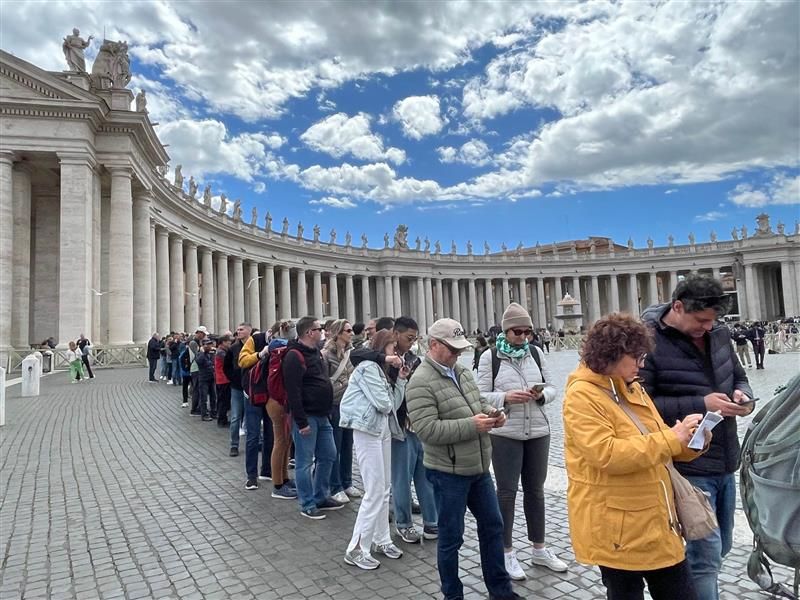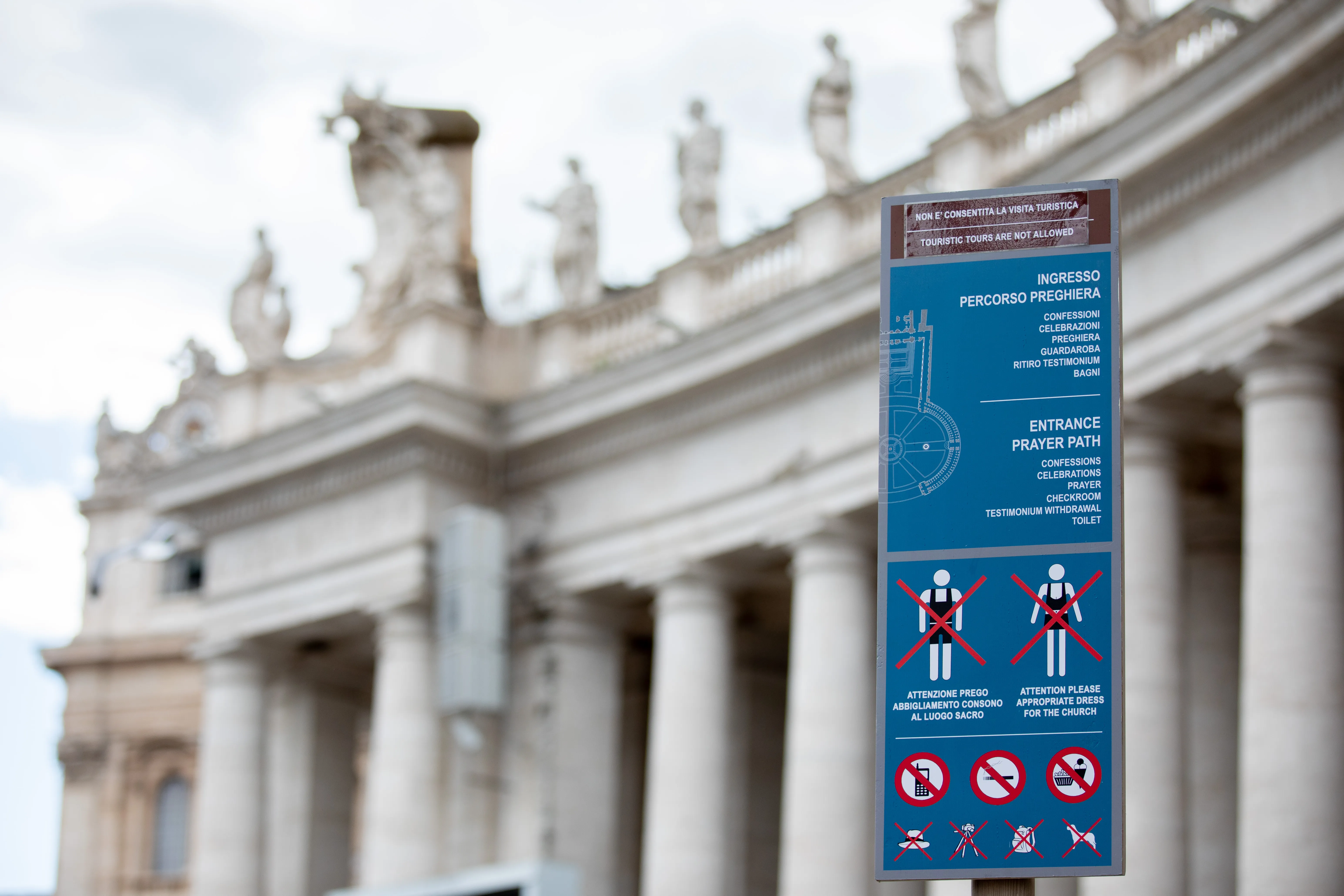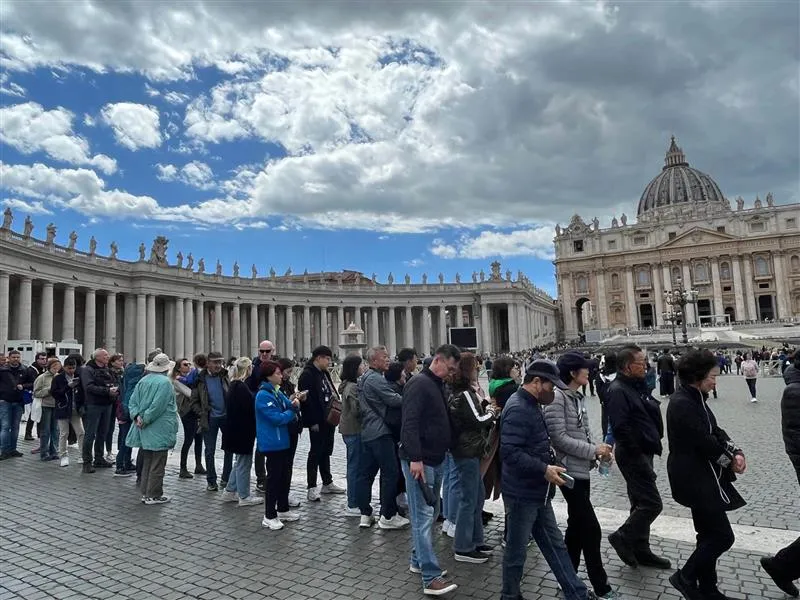
The Vatican announced Saturday that as Cardinal Gerhard Müller’s term as prefect of the Congregation for the Doctrine of the Faith comes to an end, the Pope has not renewed it, but has appointed Jesuit Archbishop Luis Ladaria to take his place.
The decision was officially published in a July 1 communique from the Vatican, which stated the Holy Father’s thanks to Cardinal Müller for his term.
July 2nd marks the end of Müller’s five-year mandate as prefect of the Congregation for the Doctrine of the Faith, which included the positions of president of the Pontifical Commission “Ecclesia Dei,” the Pontifical Biblical Commission and the International Theological Commission.
Pope Francis named Jesuit Luis Francisco Ladaria Ferrer, archbishop of Thibica, as his successor in the same duties. Archbishop Ladaria has been secretary, the second in command, of the Congregation for the Doctrine of the Faith since 2008.
The Vatican did not specify what Cardinal Müller will be doing next.
Müller was tapped to head the congregation, the most important dicastery in the Roman Curia, by Benedict XVI in 2012.
Pope Francis renewed Müller’s appointment to the CDF and to each of the commissions after his election, allowing the prelate to serve the entirety of his 5-year term in each, which ends July 2.
Müller is known to have been a conservative voice within the Curia, and, contrary to other German prelates, backed more traditional interpretations of Chapter 8 of Pope Francis’ 2016 post-synodal apostolic exhortation, “Amoris Laetitia,” on the reception of communion for divorced and remarried couples, insisting that it does not breach Church teaching.
In addition to the announcement of Archbishop Ladaria as Müller’s replacement, the only other appointment announced July 1 was Cardinal Giuseppe Betori, archbishop of Florence, as a member of the Congregation for the Causes of Saints.
If you value the news and views Catholic World Report provides, please consider donating to support our efforts. Your contribution will help us continue to make CWR available to all readers worldwide for free, without a subscription. Thank you for your generosity!
Click here for more information on donating to CWR. Click here to sign up for our newsletter.







“He also said he does not like ‘extremisms, either progressive, or traditionalist ones’ but believes ‘there is a via media’ which is the ‘correct path to take, even if each of us has his own peculiarities, because, thanks be to God, we do not repeat, we are not clones'(Cardinal Ladaria SJ).” Edw Pentin voiced cautious reserve in Pope Francis’ choice. Pentin noted concern of having two Jesuits in the foremost positions of authority in the Church. It’s the “via media” that is most concerning given that he has never expressed any concern whatsoever over AL. Via media is the Pontiff’s putative approach for communion for D&R in AL. What is striking regarding a middle ground narrowly measured approach in AL is far from what has transpired in those Nat Bishops Conf that have adopted AL and gone far beyond giving sanction to reliance on conscience. It seems considering what is said here Cardinal Ladaria SJ will amount to no more than a yes man. An effectual papal puppet. At least to his great credit Cardinal Mueller had the courage to warn the German Bishops. But who would think outlaw Card Reinhold Marx who previously said he would defy Rome in the mold of Martin Luther and follow his own perspectives on moral issues would pay attention to Card Mueller. Now the Pontiff no longer needs to deal with a Gadfly. He’s appointed a Gnat.
“The Vatican announced July 1 that taking Müller’s place will be Jesuit Archbishop Luis Ladaria, who was appointed secretary to the CDF by Benedict XVI in 2008, and is known to be simple, orthodox in his theology, highly intellectual and is described by those who know him as not being a ‘yes man’.”
http://www.catholicworldreport.com/2017/07/02/cardinal-mller-theres-no-problem-between-me-pope-francis/
I hope he is a good Jesuit and not a bad one.
Oh, brother.
I don’t see how Ladaria is anything but a
“Yes” man as Fr. Morello’s excellent comment declares.
At some point, as Christ promised, the Holy Spirit will have to intervene because Pope Francis will actively move to deny Church doctrine.
“The Vatican announced July 1 that taking Müller’s place will be Jesuit Archbishop Luis Ladaria, who was appointed secretary to the CDF by Benedict XVI in 2008, and is known to be simple, orthodox in his theology, highly intellectual and is described by those who know him as not being a ‘yes man’.”
http://www.catholicworldreport.com/2017/07/02/cardinal-mller-theres-no-problem-between-me-pope-francis/
The SJ is about the sexual revolution and their world-wide zeitgeist brand.
With exceptions for the orthodox ones I know I can trust, like Fathers Schall, Fessio and others like them, I begin with total distrust of anyone of SJ.
I wish their decadent order would disappear faster than they already are.
Just what Pope Francis wants – another yes man carrying water for his decadent 1960s “Kasper-Kirk” the new Church of man as god:
Quote Kasper: ” The God who sits enthroned over the world and history as a changeless being is an offense to man.” (Kasper, God in History, 1967).
Total arrogance.
I reject Pope F until the day he answers the dubia by unambiguously affirming FC, and upholding the word of Jesus against his henchman Kasper and his neo-Pharisee demand for divorce.
I thin a correction should be made in the article and instead of saying: “the most important dicastery in the Roman Curia”, it should be “formerly the most important dicastery…”, as it seems clear that the Pontiff doesn’t have much patience with doctrine. Otherwise, why would be refuse to answer the “dubia”? He is gung ho on changing the doctrine surreptitiously by means pastoral practice. Maybe Ladaria, being aJesuit, will be more docile, according to the Ignatian doctrine of “blind obedience”, or at least he will keep his mouth shut on AL. He is certainly not heterodox.
Oh I doubt Father Ladaria would be intimidated by his fellow Jesuit. Look at Father Fessio–he’s not ever been intimated
by his fellow priests, including his fellow Jesuit, the Pope.
Sick and tired of this man who sits in St. Peter’s chair.
He is not my pope until he answers the dubia.
How could one be concerned about the 4th of July celebrations when a whole new scandal is breaking about the sexual abuse of children, wholesale gay parties in the Vatican and how two of the advisors close to the pope are deeply involved in ongoing sexual activities in a place owned by the Vatican. Amazing, we thought the church had entered into a new era obviously nothing ever changes. These priests and even cardinals involved who practice the gay lifestyle in grand style are rife in the Vatican even those who direct the Liturgy are involved and many others. Some from Australia, Pell for one with many cases against him and those from America who have brought new gay life to the Vatican. It has been all over the radio today is Los Angeles, Radio KFI. Tomorrow it will be all over NY news. They were those that pushed the investigations against Cardinal Mahoney. Evidently, the time has come to leave the church as only a nod is given to these unforgivable acts and life goes on starting with the pope and ending with the lowest priest in any diocese. Obviously, there is no cure for these sins. Well, this will never be posted. God help us, evidently, this is just another Jesuits will be Jesuits. The elites? We don’t think so.
Kathy,I believe that God issues the call, but until these molesters and the bishops who shield them face justice,men who want to live a holy life will stay away from the priesthood. Thank God Pope Francis sent Pell back to Australia to face the music and answer to the law for his misdeeds.
Kathy,thank God Pope Francis sent Pell back to Australia to face the music. Men who want to to serve God will stay away from a priesthood where sin is allowed to flourish.
I hope this man is like Father Fessio an not like Bergoglio,I hope he is Orthodox an a Loyal Son of Jesus Christ……